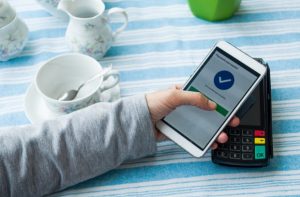Personal Independence Payment (PIP) is a social security benefit that helps disabled people live independently. It is designed to provide a level of financial security and independence so that people can live as fully participating members of society. If you are claiming PIP, it’s important to know the different types of disabilities that qualify you for the benefit, as well as the different ways you can claim it. In this article, we’ll equip you with everything you need to know about PIP, so you can make the best choices for your situation.
Eligibility for Personal Independence Payment(PIP)

If you are 16 or older and have a psychiatric illness, or handicap, or are over the State Pension age, you may be eligible for Personal Independence Payment (PIP). PIP is a government fund that helps people with serious disabilities live as independently as possible.
To be eligible for PIP, you must first be assessed by a doctor to see if you meet the criteria for the condition you have. If you do, the doctor will determine your entitlement level based on your individual circumstances. The entitlement level will then help decide how much money you will receive each month.
How Much is PIP?
1. Daily living part
The daily living part of PIP is designed to help with the costs of everyday life, such as cooking and cleaning. The amount you receive is determined by how your condition affects you.
If you can’t prepare or cook food dishes, dress, or wash, you’ll get the highest rate of £92.40 a week.
If you need help with some daily activities but not others, you’ll get the middle rate of £61.85 a week.
And if your condition only has a slight effect on your daily life, you’ll get the lowest rate of £24.45 a week.
2. Mobility part
The mobility part of PIP is designed to help with the costs of getting around, such as traveling to work or going to the shops. The amount you get depends on how your condition affects your mobility.
If you can’t walk or need help getting around, you’ll get the highest rate of £64.50 a week.
If you have some difficulties with mobility but don’t need much help, you’ll get the middle rate of £24.45 a week.
How to Claim PIP?

To claim PIP online, you first need to access your Personal Independence Payment account. From there, you will be able to check your application status and make any required changes.
If you’re claiming PIP in person, you can visit your local Personal Independence Payment office or call the number on the back of your current claim form. You will then need to complete a set of forms and provide additional documentation.
If you’re claiming PIP by phone, you can do so by calling the Personal Independence Payment Helpline at 0800 917 2222. You will be required to provide your name, national insurance number, date of birth, and Bank Account Number. You will also be asked to choose a preferred method of payment (credit card/debit card, direct debit), and complete an information questionnaire.
If you’re claiming PIP by post, you can download and fill out a claim form and send it along with relevant documentation (such as medical reports) to the appropriate address listed on the back of your current claim form. You can also fax copies of all necessary documents to the post. Finally, if you want to apply for PIP by post via email, please send an email with your relevant documents attached as an attachment.
Things should be kept in mind while claiming PIP

It is vital to understand what assistance is supplied and how to obtain it if you believe that you may be able to qualify for PIP. Contacting the local Work Capability Assessment (WCA) Unit is the first step.
PIP is a government-funded service that assists persons with impairments to live independently in the neighborhood. It’s pronounced PIP.
The WCA units are in charge of assessing whether someone is eligible for PIP, and they will do so by examining your medical records and asking you a series of questions. The WCA unit will provide you with information on PIP and how to apply for it once you’ve contacted them. They’ll also give you information on the kinds of assistance that are available.
This will most often include funds for equipment or services that assist you to live more independently.
Conclusion
By now, you would have understood that Personal Independence Payment (PIP) is a system by which the government helps eligible people with financial assistance.
Besides supporting those who lack financial resources and the ability to manage their day-to-day expenses, PIP also ensures that no one becomes a burden on the state exchequer. In case you need any help in applying for it, just share your details here!










Leave feedback about this